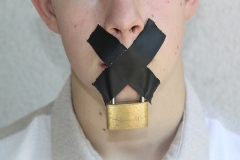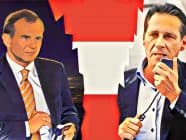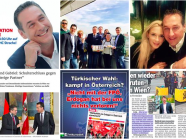 Economic success is the precondition for political independence, yet both are difficult to achieve.
Economic success is the precondition for political independence, yet both are difficult to achieve.
Criticism and media control decide the quality of a democracy. A democracy is highly dependent on the quality of its communication with citizens. However, in Austria media quality is not appreciated – to the contrary, it is rather disrespected. The reasons are partly historic, partly political. We can expect no circumstantial improvement for the future without a change in mindset.
As is often the case, one can’t get around some basic obstacles: The freedom of news media requires independence of publishing houses and outlets. On the other hand, this independence implies business success and freedom of access by third parties. The first is being impeded, the second is not granted at all.
Unique in the developed world, the Austrian federal government imposes an extra tax on revenues generated from advertising, which is highly important for media companies. The amount the state collects from this tax is 10x larger than the amount the press acquires from ad sales. The remaining sum sufficiently pays for the government ad campaigns in the free and yellow press.
While quality journalism is upheld in some media, blackmail journalism is sometimes accommodated. These media politics resemble those cherished in times of censorship and police state, when monarchs such as Prince Metternich were in authority. Such tactics are adopted to constrain critical newspapers and to give gossip papers their head.
The constant practice of authority bringing state-owned radio and television to heel with allocations and privileges should also be seen in this tradition. Which is why the people’s kitchen of Austrian public broadcaster ORF – the institution designed to appease the masses – often carries a suspicious smell, further intensified by the free press whose readers don’t realize they pay the high price of being deceived for “zero cost” delivery.
Austria’s history is – among others – one of ruling by all means. Allowing for criticism and control in the media is not part of their history. Yet this would guarantee the independence and quality of media, reflecting the substance of democracy. Apparently no one in this country wants to hear this. Repeatedly, our Republic has been scolded by the European Court of Human Rights regarding matters of freedom of opinion. Only the fourth estate’s criticism and control function will allow democracy to operate as intended. Press freedom should therefore be held in high esteem initiating responsibility for those who are commissioned with it.
In reference to a survey, Hans Gasser, president of the Austrian Publishers’ Association said that the general public knows about the high value of free and non-censored information and opinion. Nevertheless, press freedom is only a right for a small privileged minority, as 80 percent of the world population does not have access or has only limited access to a free press, said Gasser.
True: Where individual journalists are murdered or are constrained from their work by violence, oppression of the masses is not far. Russia, Iran and especially China provide shameful illustrative material: “Punish one, educate hundreds” is the principle of dictatorial leadership.
The quality of the news media stands for the quality of the democracy. Thus it is disgraceful when neither freedom nor democracy are served and when press freedom mutates into freedom to profit whatever the cost – social and otherwise. The ruling politicians approve because it is less costly for them than criticism and control. In any case, the price of the lack of press freedom will be paid by the public.
Original article published in Die Furche, No. 18/2012
Tags: Austrian Media Landscape, Austrian Publishers’ Association, Freedom of Opinion, Hans Gasser, media control, Media Criticism, ORF, The Fourth Estate, Zero Cost












































